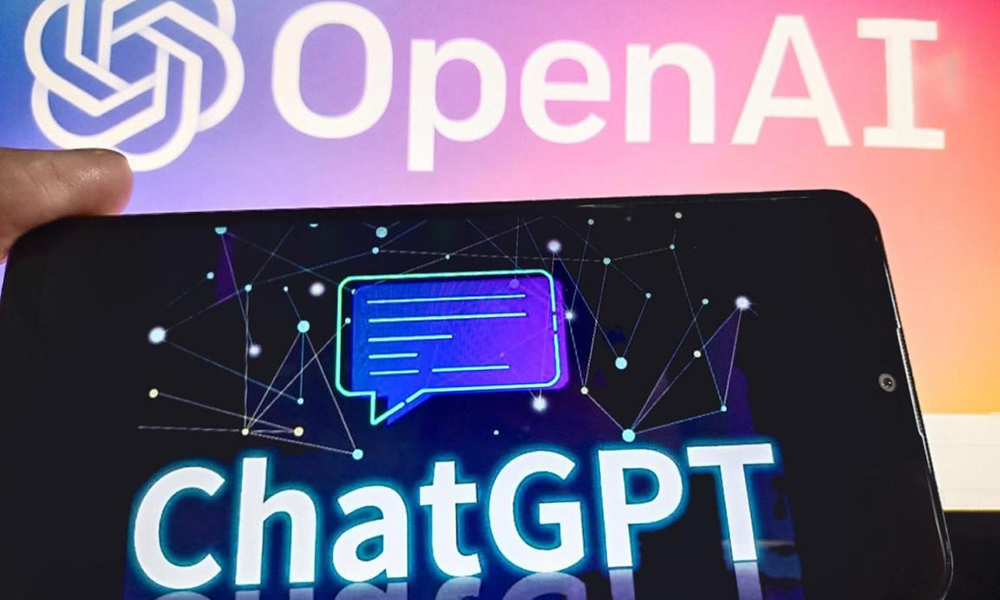
近幾個(gè)月,,新人工智能模型的快速興起,,例如OpenAI的ChatGPT等,讓一些技術(shù)專家和研究人員開始思考,,人工智能的能力是否會(huì)很快超過人類,。OpenAI的前關(guān)鍵研究人員表示,這種未來極有可能發(fā)生,,但他也警告說,,達(dá)到人類水平或者超人類水平的人工智能控制甚至消滅人類的幾率并非為零。
OpenAI的前安全團(tuán)隊(duì)語言模型對(duì)齊主管保羅·克里斯蒂亞諾在4月下旬接受了科技播客Bankless的采訪,。他表示,,最擔(dān)心的情況是“成熟的人工智能掌控人類”,。他在采訪中警告道,高級(jí)人工智能有相當(dāng)大的機(jī)會(huì),,在不遠(yuǎn)的將來引發(fā)可能會(huì)導(dǎo)致世界毀滅的大災(zāi)難,。
克里斯蒂亞諾說:“總體而言,在人工智能系統(tǒng)達(dá)到人類的水平之后,,我們有超過50%的概率很快遭遇末日,。我認(rèn)為人工智能有10%至20%的概率,造成許多甚至大多數(shù)人類死亡,,并接管人類,。”
克里斯蒂亞諾于2021年從OpenAI離職,。他在由人工智能研究人員埃利澤·尤德考斯基創(chuàng)建的社區(qū)博客網(wǎng)站LessWrong的《Ask Me Anything》欄目里解釋了自己離職的原因,。尤德考斯基多年來一直警告超人類人工智能可能毀滅人類??死锼沟賮喼Z當(dāng)時(shí)寫道,,他希望“研究人工智能對(duì)齊方面的更多概念性/理論性問題”,人工智能對(duì)齊是一個(gè)人工智能安全研究子領(lǐng)域,,旨在保證人工智能系統(tǒng)符合人類的利益和道德準(zhǔn)則,。他表示,在這方面的研究中,,OpenAI“并非是做得最好的”,。
克里斯蒂亞諾目前經(jīng)營一家非營利組織Alignment Research Center,致力于研究理論上的人工智能對(duì)齊策略,。最近幾個(gè)月,,隨著各大公司競相推出日益復(fù)雜的人工智能模型,這個(gè)領(lǐng)域的研究引起了極大關(guān)注,。今年3月,,OpenAI發(fā)布GPT-4,對(duì)驅(qū)動(dòng)ChatGPT的人工智能模型進(jìn)行了更新,。ChatGPT在2022年11月才公開發(fā)布,。與此同時(shí),谷歌(Google),、微軟(Microsoft)等科技巨頭展開了人工智能軍備競賽,,紛紛發(fā)布了支持商業(yè)應(yīng)用的人工智能模型,希望在這個(gè)新興市場里占據(jù)一席之地,。
但目前公開發(fā)布的人工智能系統(tǒng)依舊存在大量錯(cuò)誤和虛假信息,,因此克里斯蒂亞諾和許多專家都警告不要操之過急。OpenAI的聯(lián)合創(chuàng)始人埃隆·馬斯克在2018年與該公司分道揚(yáng)鑣。今年3月,,包括馬斯克在內(nèi)的1,100名技術(shù)專家發(fā)表公開信,,呼吁比GPT-4更強(qiáng)大的高級(jí)人工智能模型的開發(fā)工作應(yīng)該暫停六個(gè)月,并將研究重點(diǎn)重新轉(zhuǎn)向提高現(xiàn)有系統(tǒng)的可靠性,。(之后,,馬斯克宣布將推出TruthGPT,與ChatGPT競爭,,他表示TruthGPT將致力于“尋求真相”,,而不是獲取利潤。)
公開信中擔(dān)心的問題之一是,,現(xiàn)有人工智能模型可能為超級(jí)智能模型鋪平道路,而這種模型可能威脅人類文明,。雖然ChatGPT等現(xiàn)有生成式人工智能系統(tǒng)有能力完成特定任務(wù),,但它們距離達(dá)到人類的智力水平仍然有很大差距。這種未來可能出現(xiàn)的人工智能被稱為通用人工智能(AGI),。
專家們對(duì)通用人工智能發(fā)展的時(shí)間線存在分歧,,有專家認(rèn)為通用人工智能的發(fā)展可能需要數(shù)十年時(shí)間,但也有專家表示通用人工智能永遠(yuǎn)不會(huì)誕生,,然而,,人工智能的飛速發(fā)展開始改變?nèi)藗兊牧觥K固垢4髮W(xué)(Stanford University)在今年4月發(fā)布的一份研究報(bào)告顯示,,約57%的人工智能和計(jì)算機(jī)科學(xué)研究人員稱,,人工智能正在快速朝著通用人工智能的方向發(fā)展,有36%的受訪者表示將重要決策交給高級(jí)人工智能來完成,,可能給人類帶來“核爆炸級(jí)別的大災(zāi)難”,。
有專家警告道,即便更強(qiáng)大的人工智能在開發(fā)時(shí)是中立的,,一旦被心懷不軌的人利用,,它可能立刻變得非常危險(xiǎn)。谷歌的前研究人員,、被稱為“人工智能教父”的杰弗里·辛頓在本周對(duì)《紐約時(shí)報(bào)》(New York Times)表示:“我們很難找到阻止不法分子利用人工智能作惡的辦法,。我認(rèn)為,在確定能否控制人工智能之前,,不應(yīng)該繼續(xù)擴(kuò)大其規(guī)模,。”
克里斯蒂亞諾在接受采訪時(shí)表示,,如果人工智能發(fā)展到人類社會(huì)缺少了它就無法正常運(yùn)轉(zhuǎn)的程度,,那時(shí)人類文明就將面臨威脅,如果有強(qiáng)大的人工智能決定不需要再為創(chuàng)作者的利益服務(wù),人類就將變得極其脆弱,。
他說:“人類滅亡最有可能的方式并非人工智能突然殺死所有人,,而是我們大量部署人工智能,讓它變得無處不在,。如果出于某種原因,,這些人工智能系統(tǒng)試圖殺死人類,它們就一定能夠做到,,但愿這種情況不會(huì)發(fā)生,。”
不過,,也有人反駁了對(duì)人工智能的這種解讀,。有專家認(rèn)為,雖然被設(shè)計(jì)用于完成特定任務(wù)的人工智能必然會(huì)出現(xiàn),,但由于計(jì)算機(jī)在解讀生活經(jīng)歷方面的局限性,,開發(fā)可以與人類匹敵的通用人工智能,在技術(shù)上不具有可行性,。
對(duì)于最近對(duì)人工智能的可怕警告,,創(chuàng)業(yè)者和計(jì)算機(jī)科學(xué)家佩里·梅茨格在今年4月發(fā)推文稱,雖然“高度超越人類的”人工智能可能會(huì)出現(xiàn),,但通用人工智能發(fā)展到能夠反抗創(chuàng)作者的程度可能需要數(shù)年甚至幾十年時(shí)間,,而它的創(chuàng)作者將有時(shí)間調(diào)整人工智能朝著正確的方向發(fā)展。對(duì)于梅茨格的推文,,紐約大學(xué)(New York University)的計(jì)算機(jī)科學(xué)家楊立昆(Yann LeCun)寫道,,通用人工智能在一夜之間具備危險(xiǎn)的、不受控制的能力,,這種宿命論的情景“根本不可能發(fā)生”,。楊立昆自2013年開始主持Meta的人工智能研究。(財(cái)富中文網(wǎng))
翻譯:劉進(jìn)龍
審校:汪皓
近幾個(gè)月,,新人工智能模型的快速興起,,例如OpenAI的ChatGPT等,讓一些技術(shù)專家和研究人員開始思考,,人工智能的能力是否會(huì)很快超過人類,。OpenAI的前關(guān)鍵研究人員表示,這種未來極有可能發(fā)生,,但他也警告說,,達(dá)到人類水平或者超人類水平的人工智能控制甚至消滅人類的幾率并非為零。
OpenAI的前安全團(tuán)隊(duì)語言模型對(duì)齊主管保羅·克里斯蒂亞諾在4月下旬接受了科技播客Bankless的采訪,。他表示,,最擔(dān)心的情況是“成熟的人工智能掌控人類”,。他在采訪中警告道,高級(jí)人工智能有相當(dāng)大的機(jī)會(huì),,在不遠(yuǎn)的將來引發(fā)可能會(huì)導(dǎo)致世界毀滅的大災(zāi)難,。
克里斯蒂亞諾說:“總體而言,在人工智能系統(tǒng)達(dá)到人類的水平之后,,我們有超過50%的概率很快遭遇末日,。我認(rèn)為人工智能有10%至20%的概率,造成許多甚至大多數(shù)人類死亡,,并接管人類,。”
克里斯蒂亞諾于2021年從OpenAI離職,。他在由人工智能研究人員埃利澤·尤德考斯基創(chuàng)建的社區(qū)博客網(wǎng)站LessWrong的《Ask Me Anything》欄目里解釋了自己離職的原因,。尤德考斯基多年來一直警告超人類人工智能可能毀滅人類??死锼沟賮喼Z當(dāng)時(shí)寫道,,他希望“研究人工智能對(duì)齊方面的更多概念性/理論性問題”,人工智能對(duì)齊是一個(gè)人工智能安全研究子領(lǐng)域,,旨在保證人工智能系統(tǒng)符合人類的利益和道德準(zhǔn)則。他表示,,在這方面的研究中,,OpenAI“并非是做得最好的”。
克里斯蒂亞諾目前經(jīng)營一家非營利組織Alignment Research Center,,致力于研究理論上的人工智能對(duì)齊策略,。最近幾個(gè)月,隨著各大公司競相推出日益復(fù)雜的人工智能模型,,這個(gè)領(lǐng)域的研究引起了極大關(guān)注,。今年3月,OpenAI發(fā)布GPT-4,,對(duì)驅(qū)動(dòng)ChatGPT的人工智能模型進(jìn)行了更新,。ChatGPT在2022年11月才公開發(fā)布。與此同時(shí),,谷歌(Google),、微軟(Microsoft)等科技巨頭展開了人工智能軍備競賽,紛紛發(fā)布了支持商業(yè)應(yīng)用的人工智能模型,,希望在這個(gè)新興市場里占據(jù)一席之地,。
但目前公開發(fā)布的人工智能系統(tǒng)依舊存在大量錯(cuò)誤和虛假信息,因此克里斯蒂亞諾和許多專家都警告不要操之過急,。OpenAI的聯(lián)合創(chuàng)始人埃隆·馬斯克在2018年與該公司分道揚(yáng)鑣,。今年3月,,包括馬斯克在內(nèi)的1,100名技術(shù)專家發(fā)表公開信,呼吁比GPT-4更強(qiáng)大的高級(jí)人工智能模型的開發(fā)工作應(yīng)該暫停六個(gè)月,,并將研究重點(diǎn)重新轉(zhuǎn)向提高現(xiàn)有系統(tǒng)的可靠性,。(之后,馬斯克宣布將推出TruthGPT,,與ChatGPT競爭,,他表示TruthGPT將致力于“尋求真相”,而不是獲取利潤,。)
公開信中擔(dān)心的問題之一是,,現(xiàn)有人工智能模型可能為超級(jí)智能模型鋪平道路,而這種模型可能威脅人類文明,。雖然ChatGPT等現(xiàn)有生成式人工智能系統(tǒng)有能力完成特定任務(wù),,但它們距離達(dá)到人類的智力水平仍然有很大差距。這種未來可能出現(xiàn)的人工智能被稱為通用人工智能(AGI),。
專家們對(duì)通用人工智能發(fā)展的時(shí)間線存在分歧,,有專家認(rèn)為通用人工智能的發(fā)展可能需要數(shù)十年時(shí)間,但也有專家表示通用人工智能永遠(yuǎn)不會(huì)誕生,,然而,,人工智能的飛速發(fā)展開始改變?nèi)藗兊牧觥K固垢4髮W(xué)(Stanford University)在今年4月發(fā)布的一份研究報(bào)告顯示,,約57%的人工智能和計(jì)算機(jī)科學(xué)研究人員稱,,人工智能正在快速朝著通用人工智能的方向發(fā)展,有36%的受訪者表示將重要決策交給高級(jí)人工智能來完成,,可能給人類帶來“核爆炸級(jí)別的大災(zāi)難”,。
有專家警告道,即便更強(qiáng)大的人工智能在開發(fā)時(shí)是中立的,,一旦被心懷不軌的人利用,,它可能立刻變得非常危險(xiǎn)。谷歌的前研究人員,、被稱為“人工智能教父”的杰弗里·辛頓在本周對(duì)《紐約時(shí)報(bào)》(New York Times)表示:“我們很難找到阻止不法分子利用人工智能作惡的辦法,。我認(rèn)為,在確定能否控制人工智能之前,,不應(yīng)該繼續(xù)擴(kuò)大其規(guī)模,。”
克里斯蒂亞諾在接受采訪時(shí)表示,,如果人工智能發(fā)展到人類社會(huì)缺少了它就無法正常運(yùn)轉(zhuǎn)的程度,,那時(shí)人類文明就將面臨威脅,如果有強(qiáng)大的人工智能決定不需要再為創(chuàng)作者的利益服務(wù),,人類就將變得極其脆弱,。
他說:“人類滅亡最有可能的方式并非人工智能突然殺死所有人,,而是我們大量部署人工智能,讓它變得無處不在,。如果出于某種原因,,這些人工智能系統(tǒng)試圖殺死人類,它們就一定能夠做到,,但愿這種情況不會(huì)發(fā)生,。”
不過,,也有人反駁了對(duì)人工智能的這種解讀,。有專家認(rèn)為,雖然被設(shè)計(jì)用于完成特定任務(wù)的人工智能必然會(huì)出現(xiàn),,但由于計(jì)算機(jī)在解讀生活經(jīng)歷方面的局限性,,開發(fā)可以與人類匹敵的通用人工智能,在技術(shù)上不具有可行性,。
對(duì)于最近對(duì)人工智能的可怕警告,,創(chuàng)業(yè)者和計(jì)算機(jī)科學(xué)家佩里·梅茨格在今年4月發(fā)推文稱,雖然“高度超越人類的”人工智能可能會(huì)出現(xiàn),,但通用人工智能發(fā)展到能夠反抗創(chuàng)作者的程度可能需要數(shù)年甚至幾十年時(shí)間,,而它的創(chuàng)作者將有時(shí)間調(diào)整人工智能朝著正確的方向發(fā)展。對(duì)于梅茨格的推文,,紐約大學(xué)(New York University)的計(jì)算機(jī)科學(xué)家楊立昆(Yann LeCun)寫道,,通用人工智能在一夜之間具備危險(xiǎn)的、不受控制的能力,,這種宿命論的情景“根本不可能發(fā)生”。楊立昆自2013年開始主持Meta的人工智能研究,。(財(cái)富中文網(wǎng))
翻譯:劉進(jìn)龍
審校:汪皓
The rapid rise of new A.I. models in recent months, like OpenAI’s ChatGPT, has led some technologists and researchers to ponder whether artificial intelligence could soon surpass human capabilities. One key former researcher at OpenAI says that such a future is a distinct possibility, but also warns there is a non-zero chance that human- or superhuman-level A.I. could take control of humanity and even annihilate it.
A “full-blown A.I. takeover scenario” is top of mind for Paul Christiano, former head of language model alignment on OpenAI’s safety team, who warned in an interview in late April with the tech-focused Bankless podcast that there is a very decent chance advanced A.I. could spell potentially world-ending calamity in the near future.
“Overall, maybe you’re getting more up to a 50-50 chance of doom shortly after you have A.I. systems that are human-level,” Christiano said. “I think maybe there’s a 10 to 20% chance of A.I. takeover [with] many, most humans dead.”
Christiano left OpenAI in 2021, explaining his departure during an Ask Me Anything session on LessWrong, a community blog site created by Eliezer Yudkowsky, a fellow A.I. researcher who has warned for years that superhuman A.I. could destroy humanity. Christiano wrote at the time that he wanted to “work on more conceptual/theoretical issues in alignment,” a subfield of A.I. safety research that focuses on ensuring A.I. systems are aligned with human interests and ethical principles, adding that OpenAI “isn’t the best” for that type of research.
Christiano now runs the Alignment Research Center, a nonprofit group working on theoretical A.I. alignment strategies, a field that has gained considerable interest in recent months as companies race to roll out increasingly sophisticated A.I. models. In March, OpenAI released GPT-4, an update to the A.I. model that powers ChatGPT, which only launched to the public in November. Meanwhile, tech behemoths including Google and Microsoft have kicked off an A.I. arms race to stake a claim in the burgeoning market, launching their own versions of A.I. models with commercial applications.
But with publicly available A.I. systems still riddled with errors and misinformation, Christiano and a host of other experts have cautioned against moving too fast. Elon Musk, an OpenAI cofounder who cut ties with the company in 2018, was one of 1,100 technologists who signed an open letter in March calling for a six-month pause on development for advanced A.I. models more powerful than GPT-4, and a refocus on research on improving existing systems’ reliability. (Musk has since announced to be starting a competitor to ChatGPT called TruthGPT, which he says will focus on “truth-seeking” instead of profit.)
One of the letter’s concerns was that existing A.I. models could be paving the way for superintelligent models that pose a threat to civilization. While current generative A.I. systems like ChatGPT can capably handle specific tasks, they are still far from reaching human intelligence levels, a hypothetical future iteration of A.I. known as artificial general intelligence (AGI).
Experts have been divided on the timeline of AGI’s development, with some arguing it could take decades and others saying it may never be possible, but the rapid pace of A.I. advancement is starting to turn heads. Around 57% of A.I. and computer science researchers said A.I. research is quickly moving towards AGI in a Stanford University survey published in April, while 36% said entrusting advanced versions of A.I. with important decisions could lead to “nuclear-level catastrophe” for humanity.
Other experts have warned that even if more powerful versions of A.I. are developed to be neutral, they could quickly become dangerous if employed by ill-intentioned humans. “It is hard to see how you can prevent the bad actors from using it for bad things,” Geoffrey Hinton, a former Google researcher who is often called the godfather of A.I., told the?New York Times this week. “I don’t think they should scale this up more until they have understood whether they can control it.”
Christiano said in his interview that civilization could be at risk if A.I. develops to the point that society can no longer function without it, leaving humanity vulnerable if a powerful A.I. decides it no longer needs to act in its creators’ interest.
“The most likely way we die involves—like, not A.I. comes out of the blue and kills everyone—but involves we have deployed a lot of A.I. everywhere,” he said. “If for some reason, God forbid, all these A.I. systems were trying to kill us, they would definitely kill us.”
Other voices have pushed back against these interpretations of A.I., however. Some experts have argued that while A.I. designed to accomplish specific tasks is inevitable, developing AGI that can match human intelligence might never become technically feasible due to computers’ limitations when it comes to interpreting life experiences.
Responding to recent dire warnings over A.I., entrepreneur and computer scientist Perry Metzger argued in a tweet in April that while “deeply superhuman” A.I. is a likelihood, it will likely be years or decades before AGI evolves to the point of being capable of revolting against its creators, who will likely have time to steer A.I. in the right direction. Responding to Metzger’s tweet, Yann LeCun, an NYU computer scientist who has directed A.I. research at Meta since 2013, wrote that the fatalistic scenario of AGI developing dangerous and uncontrollable abilities overnight is “utterly impossible.”






